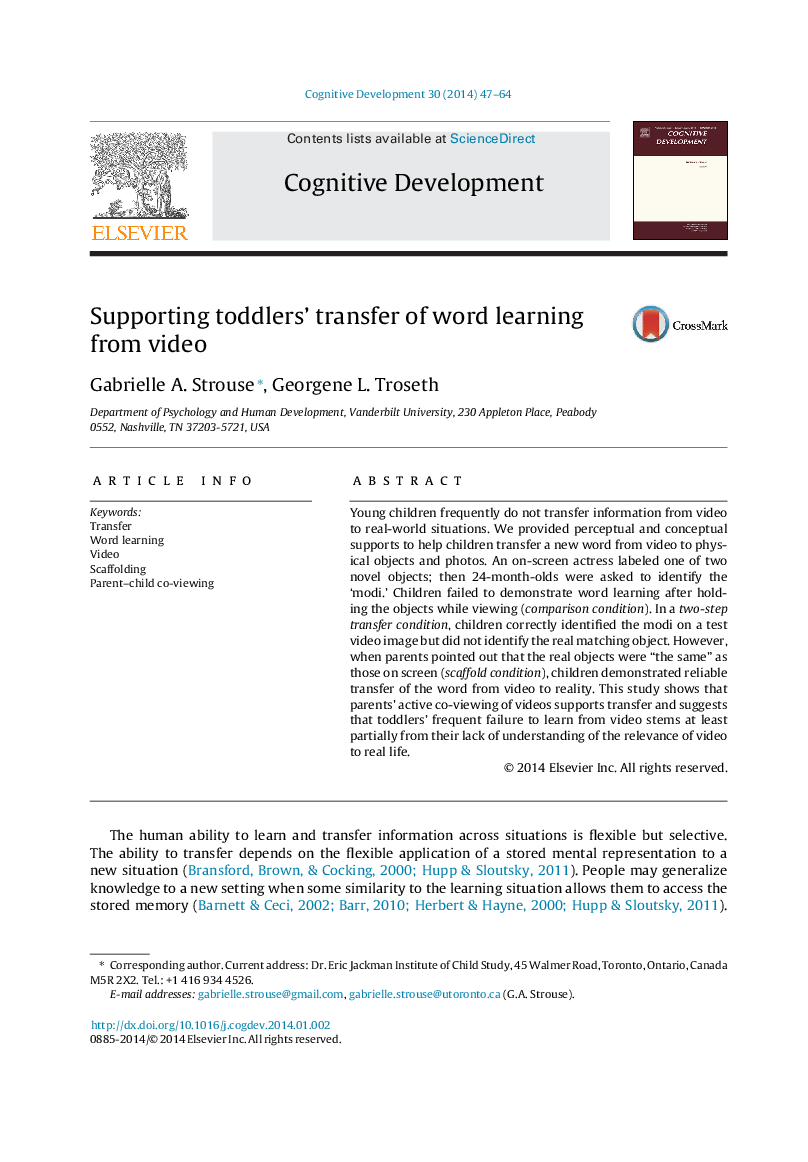| Article ID | Journal | Published Year | Pages | File Type |
|---|---|---|---|---|
| 916480 | Cognitive Development | 2014 | 18 Pages |
•We offer perceptual and conceptual support to help toddlers learn a word from video.•Perceptual support helps them learn the word and identify the named object on video.•Children need parental scaffolding to transfer the word to the real depicted object.•Children's failure to transfer stems at least partly from their concepts about video.
Young children frequently do not transfer information from video to real-world situations. We provided perceptual and conceptual supports to help children transfer a new word from video to physical objects and photos. An on-screen actress labeled one of two novel objects; then 24-month-olds were asked to identify the ‘modi.’ Children failed to demonstrate word learning after holding the objects while viewing (comparison condition). In a two-step transfer condition, children correctly identified the modi on a test video image but did not identify the real matching object. However, when parents pointed out that the real objects were “the same” as those on screen (scaffold condition), children demonstrated reliable transfer of the word from video to reality. This study shows that parents’ active co-viewing of videos supports transfer and suggests that toddlers’ frequent failure to learn from video stems at least partially from their lack of understanding of the relevance of video to real life.
